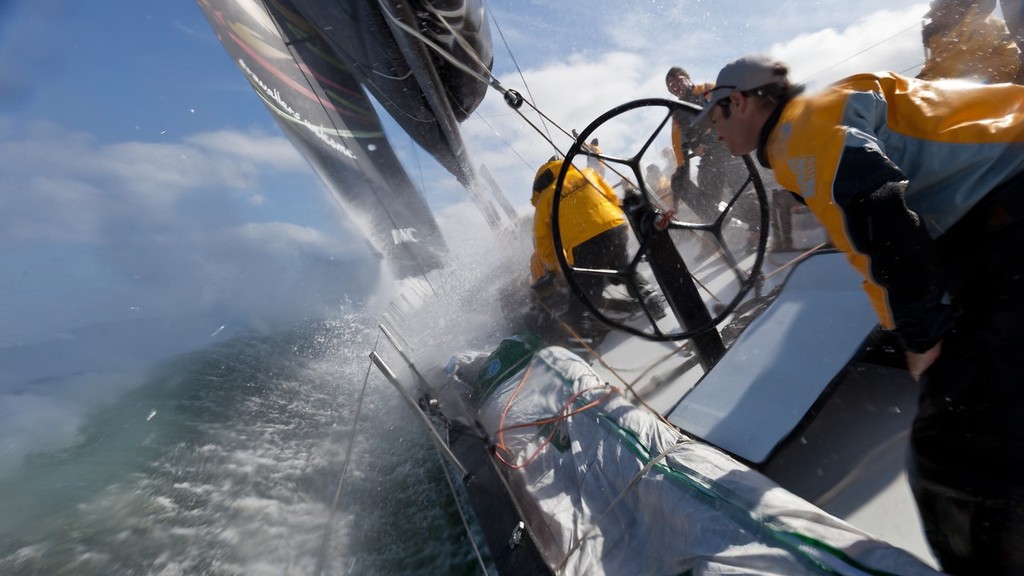Volvo Ocean Race- Why sail strategy could hold key to victory
by Volvo Ocean Race media on 24 Aug 2011

Abu Dhabi Ocean Racing entry in the Volvo Ocean Race 2011-12, training in the Solent prior to the start of the Rolex Fastnet Race. Ian Roman/Volvo Ocean Race
http://www.volvooceanrace.com
With no one team looking likely to deliver any significant raw speed advantage straight out of the blocks, the 2011–12 edition of the Volvo Ocean Race looks set to produce some of the closest racing ever.
The race gets underway from Alicante, Spain on 5 November on the first leg to Cape Town, South Africa.
'I think the sails are probably going to hold the key even more so this time' Ian Walker
Stuart Bannatyne, watch captain on CAMPER with Emirates Team New Zealand, believes that the latest round of designs may have equalised the fleet’s overall performance.
'The Volvo Open 70s have developed to a point now where they are going to be very similar boats to the last race,' he said. 'It’s just been a sort of gentle evolution of designs.'
According to Bannatyne’s skipper, Chris Nicholson this levelling of the playing field may force teams to adopt more aggressive strategies.
'I think things will be a little different on the tactical side this time around,' Nicholson said. 'In the past, some teams were so much faster than others that tactically, they could play it quite conservatively. Actually I think this race will be about knowing your strengths and backing them, and that could be quite a change for the Volvo Ocean Race.
'As a result I think this will be a cool edition of the race, with lots of action and plenty of interesting stories coming out of it. '
For Abu Dhabi Ocean Racing skipper Ian Walker, in the headlong rush for competitive advantage, the new Volvo Ocean Race sail restriction rule has added even more importance to the teams’ sail development programmes.
'I think the sails are probably going to hold the key even more so this time,' Walker said. 'We are down to 17 sails and it’s not just about the shape and construction, but also the longevity of the individual sails. That’s why everyone has been putting so much time into sail testing.'
Beyond sail development however, Walker’s team have also introduced other subtle refinements to their new boat.
'We have tried to look at every aspect and make as many small performance gains as we can. Aerodynamically our deck layout is very clean because we have run all of the ropes beneath the deck in carbon piping. For the same reason, there is also no coach roof to disturb the airflow. Our decks forward of the cockpit slope away quite markedly and this is to try to get the weight of breaking waves off the boat as quickly as possible.'
Ken Read, who finished second in the Volvo Ocean Race 2008-09 and will skipper PUMA Ocean Racing again this time, says it is hard to believe that the racing could get any closer.
'I can’t describe how close that last race actually was,' he said. 'In a round the world race it always seemed like we had another boat in sight. I really don’t know how it can get any closer, but I certainly don’t imagine it will get any further apart.'
If you want to link to this article then please use this URL: www.sail-world.com/87662